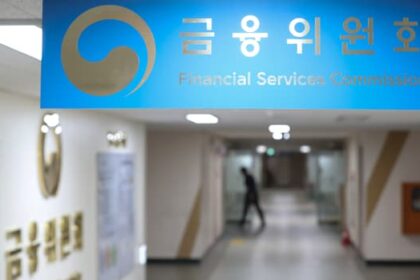How a parent complaint exposed a hidden past
A 66-year-old man who worked as an assistant teacher at a municipal junior high school in Sue, Fukuoka Prefecture, has been arrested on suspicion of using a forged teaching license to secure the job. Police identified him as Masahito Kondo. Investigators say Kondo submitted a copy of a junior high school teaching license that bore his name but carried a license number issued to someone else. He has admitted to using counterfeit official documents, according to police.
- How a parent complaint exposed a hidden past
- A yearslong trail of forgery and punishment
- What Japanese law requires of teachers
- Why the forged document was hard to catch
- What officials and the courts have said
- Possible charges and what comes next in Fukuoka
- How schools can strengthen screening now
- What parents and students can watch for
- Key Points
The school hired Kondo in April to support math classes and supervise students during non-instructional time after he applied in January. A teaching license is not legally required for assistant teachers, but the local education board asks applicants to present one to help confirm competency and protect students. The arrangement began to unravel in September when a parent complained that Kondo made an inappropriate remark to a female student, saying she “looked erotic.” Concerned by the disclosure, the parent searched online and found Kondo’s history of working without valid credentials. School officials asked him to produce his original license. He failed to do so and was placed on leave, and police were consulted. Investigators later searched his residence and seized materials as they examined the suspected forgery.
A yearslong trail of forgery and punishment
Police believe Kondo held positions in both Kyushu and the Kanto region while relying either on revoked licenses or forged credentials. The record of disciplinary action against him stretches back nearly two decades. In 2005, Kondo was involved in a child prostitution case. He was dismissed from his post and lost his teaching license. He later regained his license, only to lose it again in 2012 following further scrutiny.
Authorities say Kondo attempted to return to the classroom in 2013 by concealing the fact that his license had been revoked. He was hired in Saitama Prefecture and later fined for violating the Education Personnel Certification Law after the concealment came to light. He then changed his surname. In 2014, he applied for a teaching position in Fukuoka using a forged license and was sentenced to 16 months in prison for forgery. The case file from that time describes the fabrication as sophisticated and damaging to public trust.
A court reviewing the 2014 case offered a stark characterization of the fake document and its effect on confidence in schools.
The forgery was highly convincing and it damaged public trust.
In 2017, Kondo was again sentenced, this time to two years and six months in prison in Miyazaki Prefecture, after submitting a copy of a revoked license that had his new surname pasted over the older name. In both the 2014 and 2017 cases, his forgeries were detected during recruitment, preventing him from entering the classroom.
What Japanese law requires of teachers
Public school teachers in Japan must hold valid teaching licenses issued by prefectural boards of education. Licenses are awarded after meeting national standards set by the Ministry of Education, Culture, Sports, Science and Technology and completing recognized teacher training. The Education Personnel Certification Law governs how licenses are granted, suspended, or revoked. Prefectural boards can revoke or suspend licenses following serious misconduct, criminal convictions involving students, or other acts that call into question a teacher’s suitability.
Historically, hiring and license checks have been managed by local education boards, with cross-checks to the prefecture that issued the license. Processes have evolved over time. Japan briefly required license renewal courses but ended that system in 2022 to reduce burdens on educators, while urging stronger school level development and oversight. In practice, verification still depends on careful document handling, direct confirmation with licensing authorities, and prompt information sharing across prefectures.
Assistant teachers and classroom aides do not always need a license by law. Many boards nevertheless request one to uphold quality standards and to screen for prior misconduct. That policy can work only if the license number and identity are verified with the issuing prefecture. The Sue case shows how reliance on a photocopy without immediate cross-checks, combined with a convincing fake, can create a costly blind spot.
Basic information on teacher certification standards and administration is provided by Japan’s education ministry. For general reference, see MEXT’s overview of teacher qualifications and policies at this site.
Why the forged document was hard to catch
Investigators say Kondo submitted a copy of a license that paired his name with a number issued to someone else. That tactic exploits two vulnerabilities. First, a photocopy can mimic the layout and security features of the real document without offering a way to confirm the issuer’s record in real time. Second, license numbers are specific to an individual and a prefecture, yet a busy hiring cycle may delay deeper checks unless a concern surfaces during screening.
Name changes can complicate checks as well. In Japan, surname changes are common after marriage or adoption, and they are legal with a formal filing. A name change alone should not be a barrier to employment, but when combined with a revoked license and a forged document, it can make detection harder unless authorities quickly match past records across jurisdictions.
Schools can limit that risk by requiring all candidates to consent to direct verification of license numbers with the issuing prefecture before an offer is made. Many boards already perform this step for full teaching posts. Extending the practice to assistant roles, and insisting on the original license at onboarding, closes the window that forged copies aim to exploit.
What officials and the courts have said
The complaint that triggered scrutiny in Sue centered on the alleged remark to a female student. The school treated the claim seriously, requested the original license, and contacted police when Kondo could not produce it. That sequence illustrates how a single report from a parent, followed by routine verification, can expose wrongdoing that might otherwise persist.
Court records from Kondo’s earlier convictions describe the techniques he used and why judges considered them a threat to public confidence. In prior cases, he was found to have submitted a forged license that looked authentic and, in another instance, altered a copy of a revoked license by pasting a new surname over the original name. The written judgments stressed the careful preparation behind the documents and the harm to trust when unqualified people present themselves as educators.
Possible charges and what comes next in Fukuoka
Police have arrested Kondo on suspicion of using a forged official document to obtain employment. In Japan, forging or using a forged official document is a criminal offense that can result in prison time. The length of any sentence depends on the specific charges, the facts that prosecutors prove, prior convictions, and judicial discretion. Kondo has prior convictions related to forged licenses that resulted in sentences of 16 months and two years and six months, respectively. He has told investigators he used counterfeit documents, according to police.
In the near term, investigators will continue to examine seized items to determine how the document was created and whether others were involved. Prosecutors will review the evidence and decide whether to indict. The school has removed Kondo from duties and the education board has begun an internal review of hiring and verification steps used in assistant hiring this year.
How schools can strengthen screening now
Cases like this are rare, yet they reveal a clear pattern in how forged credentials get through early steps. Practical safeguards can reduce the risk without slowing hiring to a halt.
- Require original licenses at the time of interview and again at onboarding, and scan them in the presence of the candidate.
- Verify the license number and issuing prefecture directly by phone or secure portal before making a formal offer.
- Maintain a log of revocation notices from other prefectures and check candidate names, former names, and birthdates against that log.
- Ask candidates to disclose prior names used in employment. Explain that the disclosure is used solely for license verification.
- Provide staff with training on common signs of alteration in printed documents, such as mismatched fonts, spacing anomalies, or improper seals.
- Document every verification step in the hiring file so later audits can confirm compliance.
What parents and students can watch for
Parents and students are not responsible for staff vetting, yet they often notice conduct that signals a problem. When a concern arises, clear reporting lines help schools respond quickly.
- Report inappropriate comments or boundary crossing to a homeroom teacher or school office immediately.
- Keep notes with dates and a short description of what occurred. Specifics help administrators follow up.
- If the response feels slow, request a meeting with the principal or district office and ask about the timeline for action.
- Encourage students to speak up if they feel uncomfortable. Reassure them that raising concerns is the right step.
Key Points
- Police in Fukuoka arrested 66-year-old Masahito Kondo on suspicion of using a forged teaching license to work as an assistant teacher in Sue.
- He allegedly submitted a copy that paired his name with another person’s license number and has admitted to using counterfeit documents, according to investigators.
- A parent complaint in September about an inappropriate comment prompted the school to request the original license and contact police when he could not produce it.
- Kondo’s license was revoked after a 2005 child prostitution case. He later reoffended in 2014 and 2017 with forged or altered licenses, serving prison sentences both times.
- Assistant teachers may not be legally required to hold a license, yet the education board requested one to uphold quality. Verification gaps helped the forgery slip through.
- Courts in earlier cases described his forgeries as highly convincing and harmful to public trust.
- Using a forged official document is a criminal offense in Japan. Kondo could face prison time if convicted.
- The case has prompted reviews of hiring and license verification practices, with calls for direct checks of license numbers and original documents in all roles.












